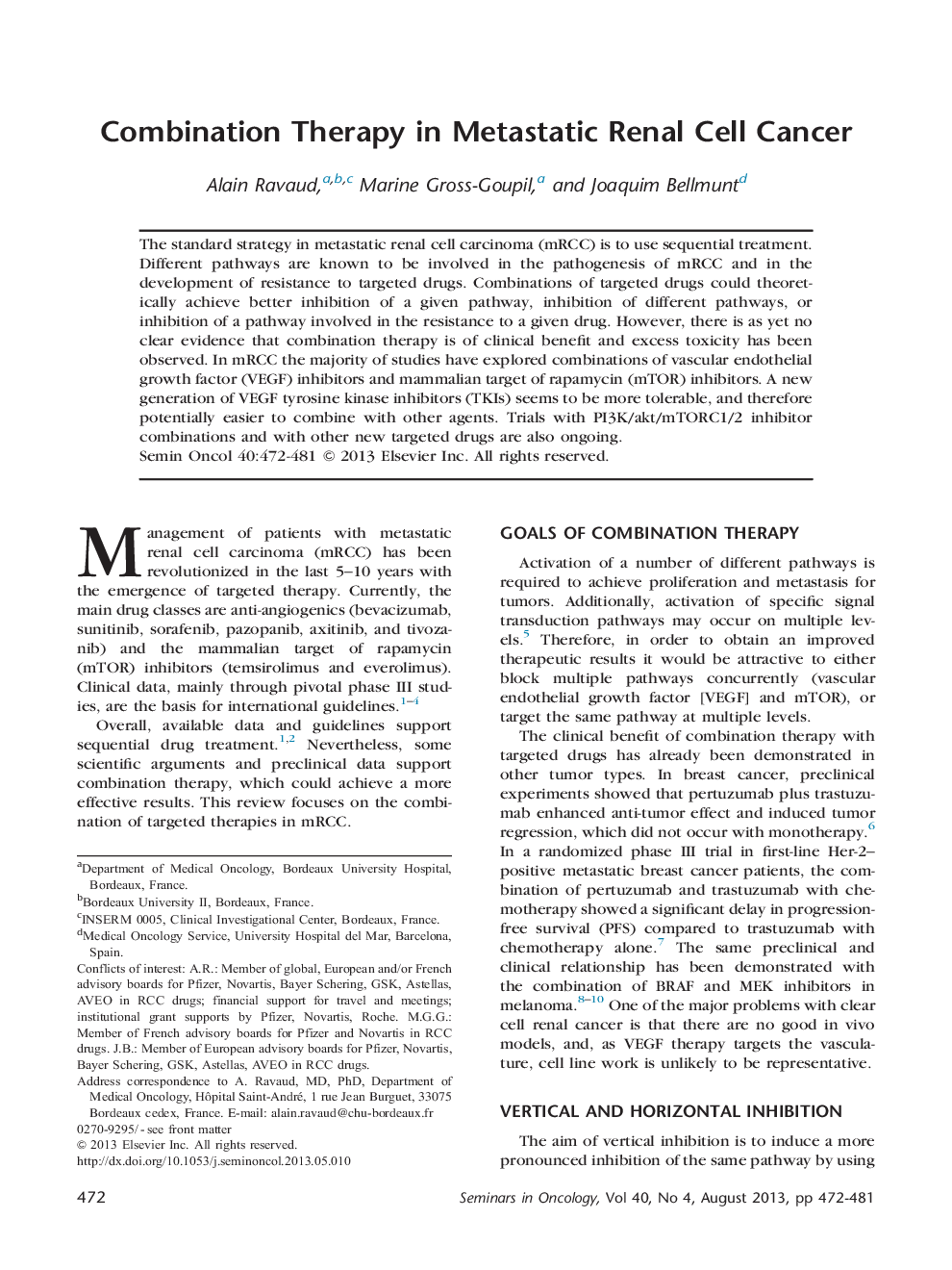| Article ID | Journal | Published Year | Pages | File Type |
|---|---|---|---|---|
| 10924438 | Seminars in Oncology | 2013 | 10 Pages |
Abstract
The standard strategy in metastatic renal cell carcinoma (mRCC) is to use sequential treatment. Different pathways are known to be involved in the pathogenesis of mRCC and in the development of resistance to targeted drugs. Combinations of targeted drugs could theoretically achieve better inhibition of a given pathway, inhibition of different pathways, or inhibition of a pathway involved in the resistance to a given drug. However, there is as yet no clear evidence that combination therapy is of clinical benefit and excess toxicity has been observed. In mRCC the majority of studies have explored combinations of vascular endothelial growth factor (VEGF) inhibitors and mammalian target of rapamycin (mTOR) inhibitors. A new generation of VEGF tyrosine kinase inhibitors (TKIs) seems to be more tolerable, and therefore potentially easier to combine with other agents. Trials with PI3K/akt/mTORC1/2 inhibitor combinations and with other new targeted drugs are also ongoing.
Related Topics
Life Sciences
Biochemistry, Genetics and Molecular Biology
Cancer Research
Authors
Alain Ravaud, Marine Gross-Goupil, Joaquim Bellmunt,
